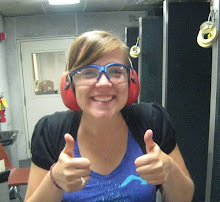The more I learn about grammar the easier it gets. I’m really enjoying challenging myself in learning the specifics for writing. This week we went over prepositional phrases and we also had another Socratic circle. I wasn’t in class Monday so I’m not exactly sure what to say about it. I suppose I understand prepositional phrases to an extent. Is it true that basically they state a location such as “under, about, above, or with?” I feel confident that I could recognize them in a sentence.
As for transitive and intransitive verbs, I think I have the basics down when I say that transitive needs a direct object whereas intransitive does not. It is just a little difficult to identify in text sometimes but if you look for the direct object it is much easier. When we studied the two before using the magnets it was very helpful to see each words separately or to decide on a verb and then use it in a transitive or intransitive way. Linking verbs I do not feel as confident about. I understand that the verb links the subject with a description of the subject but when there is not one of the five senses involved it is difficult to determine if it really is a linking verb or not. I am sure with more practice I will be able to identify them right away.
The Socratic circle this time was different then how we had done it previously. This time we were in one giant circle which I found both positive and negatives. People were much more willing to talk because we were all on the same level I suppose you could say but I like how with two circle you get to take a step back and watch from the outside. However, with one circle you get to voice your opinion basically whenever you have an idea. I can see the pros and cons to both but I would say that I enjoyed having two circles.
Question: How do you go about recognizing linking verbs? What triggers you to say it is one and do you have any examples?
Subscribe to:
Post Comments (Atom)

Hey, Jenn!
ReplyDeleteOne of the things that I always think first when looking for linking verbs, is any form of the word "to be." Is, was, were, am, etc. This will be a linking verb + subject complement construction (almost?) every time. Linking verbs are never really an "action," per se; they simply refer back to the subject and then modify it with a noun or adjective. Here is an example:
Jenn is a good student.
Jenn = subject
is = linking verb
student = subject complement
Without a linking verb to "link" Jenn and student, the subject would read: Jenn student. Wha? So, that's why we need a "link" in there to make a sentence. Does this make sense or am I rambling again? :P
yeah, but the tricky thing is that "to be" verbs aren't the only LVs. They're a slew of them.
ReplyDeleteThe only way to tell is to look at the adjective or noun that follows the verb. Is that adj/noun referring back to the subject? If so, you're look at a linking-verb sentence.